
Whilst trawling through the delights of the internet in search of inspiration US-based filmmaker Alison Grasso stumbled upon a lad from Leeds, Rich Myers, his business Get Baked and the tantalisingly named ‘Sprinklegate’ scandal. Grasso immediately knew she had found her story and wanted to peer behind the curtain of this fluffy viral moment and thus began the transatlantic production of her documentary Hope You Fail. On the surface, a short film about rainbow coloured sprinkles might not seem the most gripping of subjects to hold an audience’s interest, but after connecting over Zoom, Grasso saw a man who had risen up from his previous failures and stood firm in the face of (absurd) adversity and recognised the potential depth of this character driven story. Hope You Fail found Grasso travelling to Leeds and back to the US with Rich to further explore the man behind the social media myth whose daily grapples with failure and loss provided the beating heart of her narrative. Ahead of today’s premiere on DN, we invited Grasso to speak to us about immersing herself in the chaos of the kitchen with handheld camera work, drawing inspiration from the aesthetics and structure of true crime docs and the anxiety of being totally reliant on a third party for the film to come to fruition.
What in particular drew you to this viral story and how did the film form from that initial spark?
I love food and I especially love baked goods and sweets, so on its face, this spoke to me. Beyond food itself, I find food politics super interesting, and that was playing a role in the story. Questions about what’s in our food, where does it come from, and what (if anything) does our government do to regulate it? Given that the contraband product in question were American sprinkles, I felt uniquely positioned as an American person to approach the story. All of that is the superficial subject, but when I got to know Rich, I found that he was the exact sort of ‘character’ I was hoping to find. He’s not at all who I expected to be a champion for rainbow sprinkles. In the past I’ve really enjoyed making films about food subjects, so that wasn’t new territory for me. But, I was excited to try some new techniques and incorporate more stylized product visuals, ideally to provide contrast to the more subdued, personal moments. My interpersonal skills proved to be just as important as technical skills, as I really wanted to make the heart of the film about a human being, and not just a viral moment.
I was excited to try some new techniques and incorporate more stylized product visuals, ideally to provide contrast to the more subdued, personal moments.
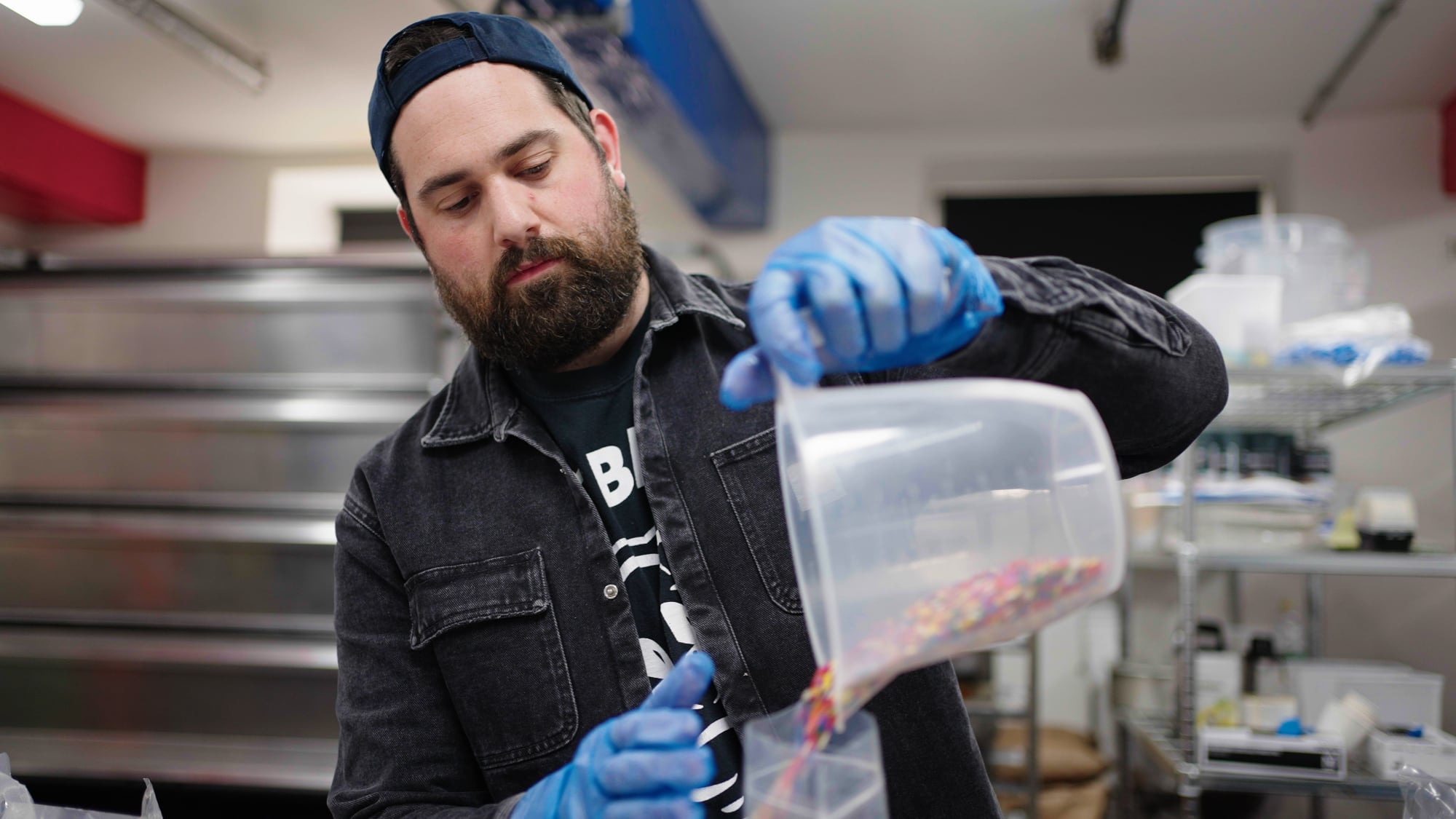
The dramatic vintage shoot when trading standards come in at the start is brilliant – why did you choose this format to tell this part of the story?
In reality, this was no doubt a routine interaction of a government official doing government business. Until you factor in the rainbow sprinkles. It’s just so ridiculous that I felt it had to be portrayed that way. When we think of public safety, exposure to red food coloring is probably not a concern to most people. I was also leaning on conventions of dramatic reenactments in crime shows. I wanted it to be corny and stupid because the situation was so absurd, and honestly, if we had more time and control over the space I would’ve dialed it up more and had him kick the door in, trash the place, and just be a really ridiculous, over-the-top bad cop.
Rich is a busy man, when you had his attention and were able to shoot what did you want to get out of him and what did you need for your story? Did you feel there was anything planned that you weren’t able to get?
Rich was (and still is) often hard to get a hold of, but when I was with him, he was super cooperative and easygoing about being filmed. He didn’t hold back at all and I think we became pretty good friends. What I mainly wanted from him was honesty and authenticity, real expressions of what he was feeling at any given time. I knew I needed some kind of character arc, dramatic tension, and ultimately payoff for the film to be what I wanted. A lot of that came from the pop-up in Houston which was not at all part of what I originally thought I’d film. I had hoped to get more into his personal life outside of the business by filming at home and more with his family, but that was sort of where he cut me off. Which I think is totally fair.
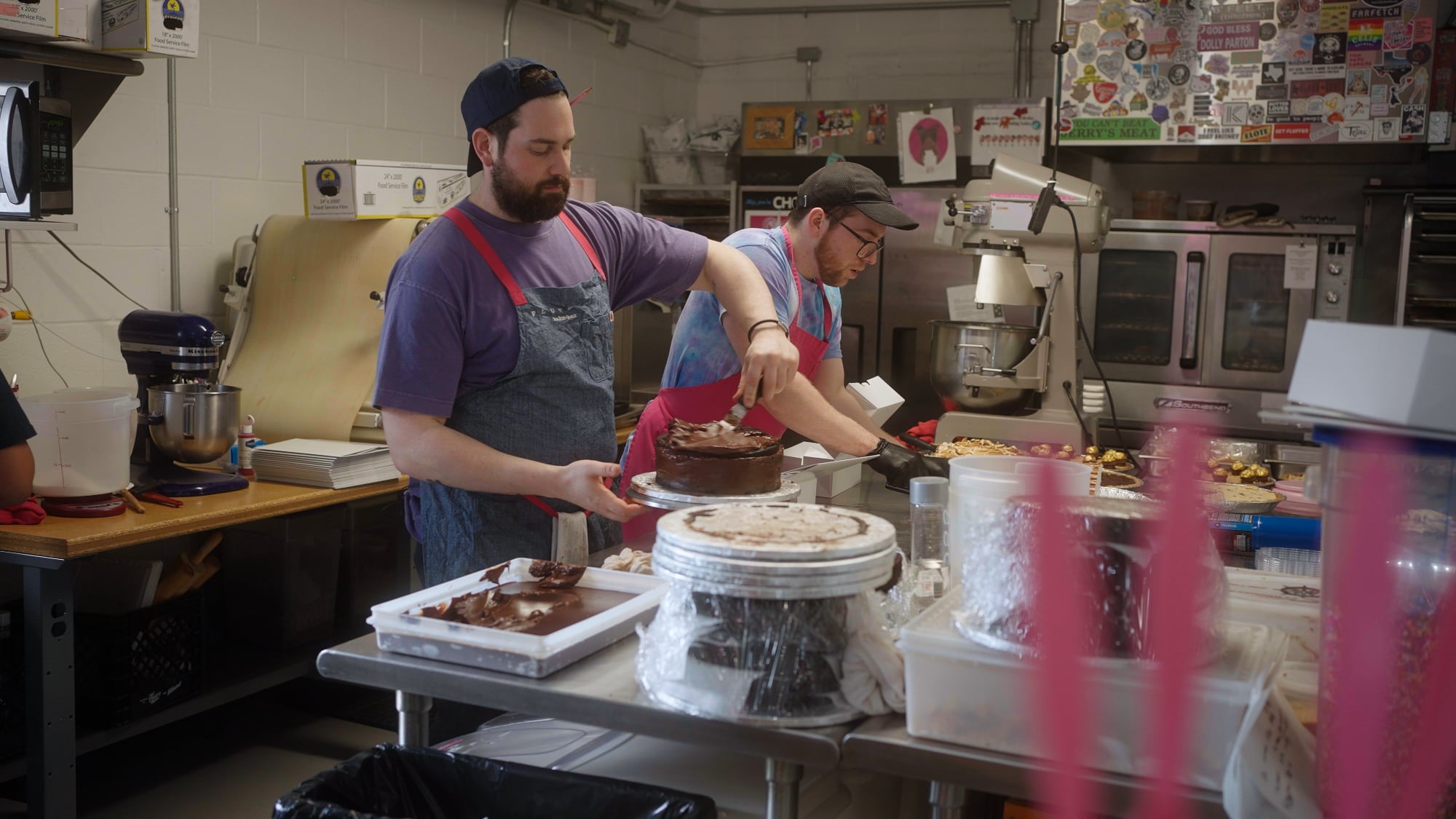
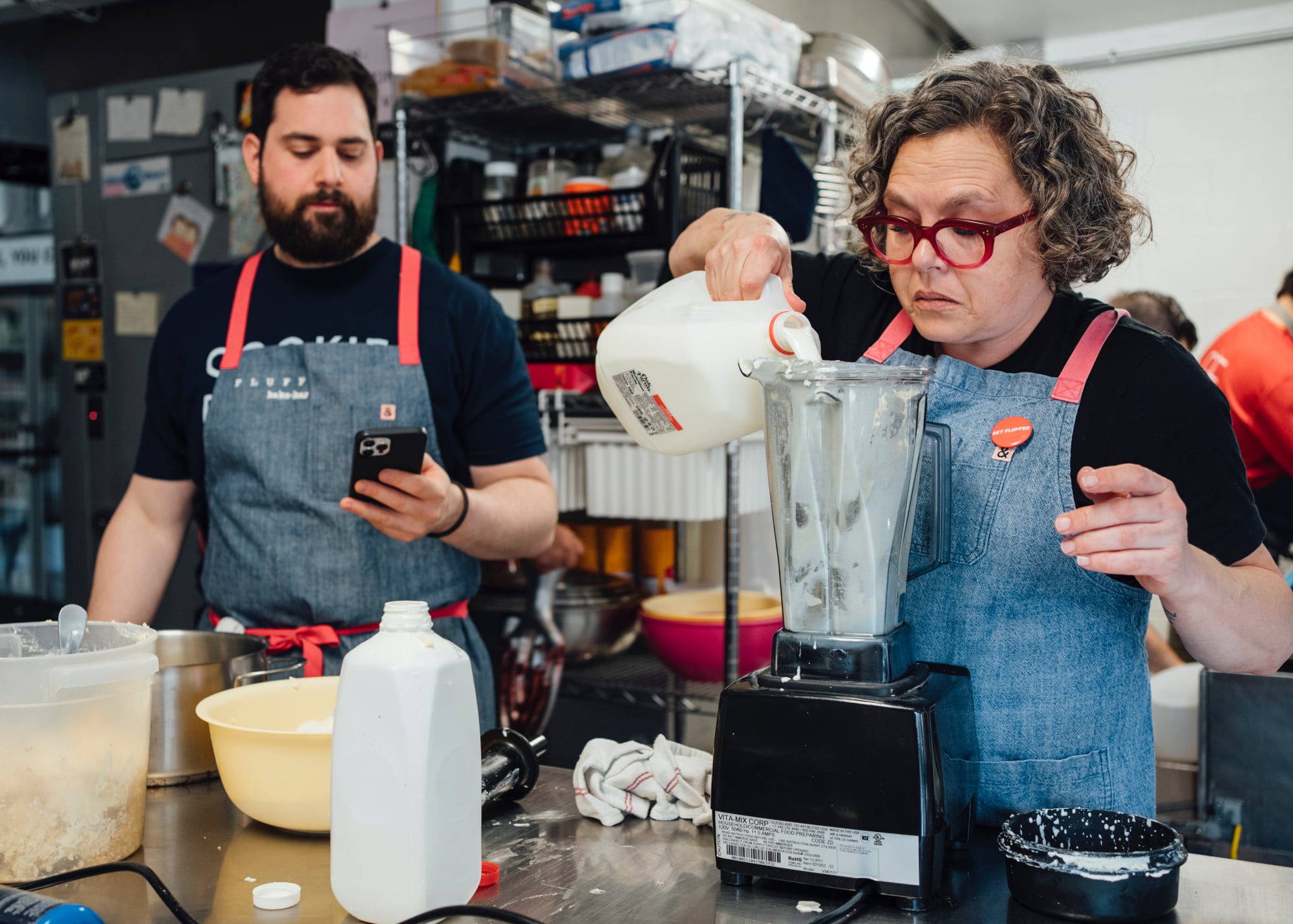
Was prompted your choice of handheld camera work when shooting those incredibly frantic working environments?
It was necessary to work that way as a crew of one, but it’s also a decision I think I would’ve made even if I had more manpower. Kitchens are known for being busy and chaotic and I needed that to be felt. Striking that balance of getting the shots I wanted and not disrupting the real work being done was definitely a challenge, and I have to applaud the patience of everyone in those kitchens! Everyone was always super kind and generous with their time. I hope this approach resulted in a feeling of really being in there with the staff.
Social media gives us the power to shape our own story – according to Rich, the crime was Trading Standards taking his sprinkles away.
How did you plan and decide on representing the integral social media clicks and the crazy momentum which snowballed into Sprinklegate?
Honestly, I looked to Netflix true crime docs, specifically, Don’t F*ck with Cats. That’s a story that’s told almost entirely over the internet, so it was a great inspiration for both the aesthetics of the digital world and how to tell a story that happens mostly online. I did want to poke fun at the ‘true crime’ genre because that’s become such a well known and often formulaic style of content. Social media gives us the power to shape our own story – according to Rich, the crime was Trading Standards taking his sprinkles away. But, according to the local government, using them in the first place is criminal.
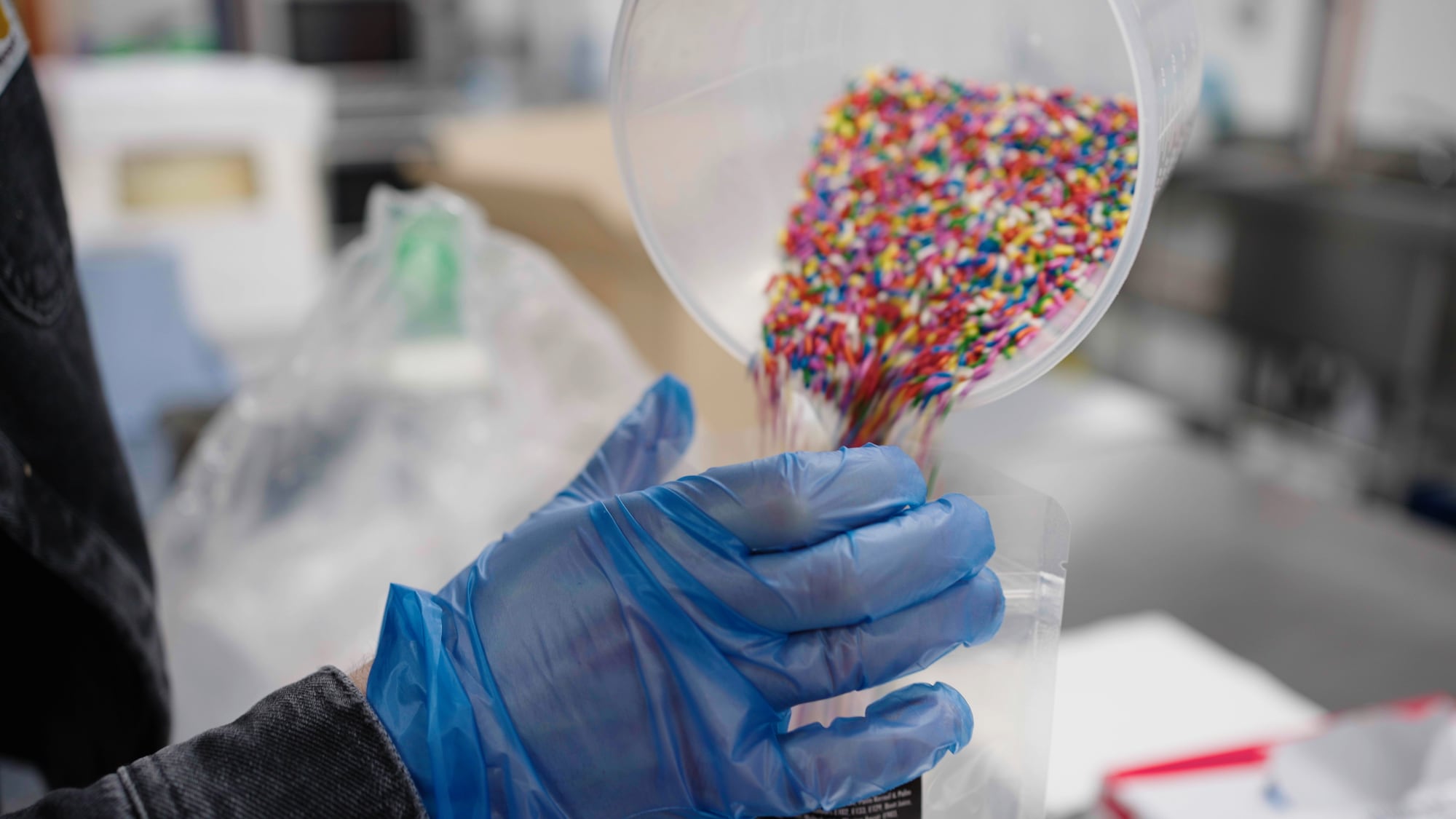
There’s a great parallel between you worrying the project would fall apart as Rich was hard to get hold of and his own worries about his business falling apart – how did you keep the momentum going in those moments?
I spent a lot of the process of making this film feeling very anxious, and I’m sure anyone with a project that’s reliant on a third party can relate. Before this film, Rich and I were strangers, so he could’ve easily just ghosted me and ditched the project. Filming with him in Houston was not something I had planned for, and I decided to go really last minute. I’m very glad I did because it was critical not just in capturing that part of the story, but in becoming comrades. At that point, we’d only met once before, but in Texas, we were both fish out of water and had taken a risk to be there.
We bonded when Rich took me to Gregg’s for a sausage, bean, and cheese melt and his followers roasted me for trying to put ketchup on it.
The final shoot in Leeds provided the character arc that allowed for the payoff to be more satisfying. It was the reflection on the journey the business had taken and really, the journey he had taken to get where he was. Ultimately, that journey culminated with the triumph of a proprietary sprinkle brand. I’d say I was able to keep the momentum going because we really just had fun hanging out when I filmed. In Houston, we bonded by doing American things like going to Walmart and eating at Waffle House. And in Leeds, we bonded when Rich took me to Gregg’s for a sausage, bean, and cheese melt and his followers roasted me for trying to put ketchup on it.
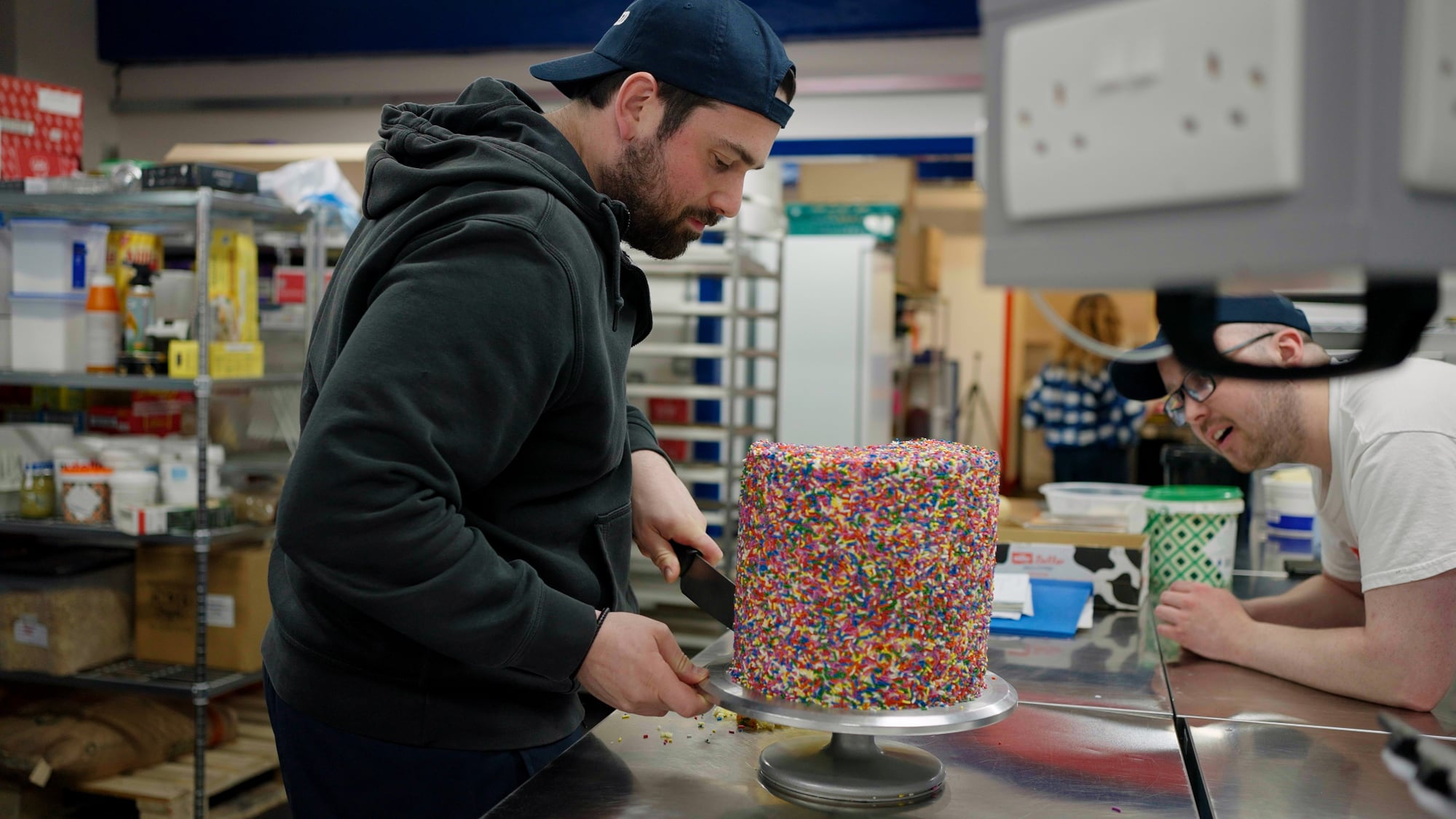
The pace of Hope You Fail matches its subject matter and I love the edit of the film with all of the snappy overlaid scenes with online comments, and news announcements about Sprinklegate.
I am an editor by trade and I work mostly in commercials, so I was really keen to incorporate that experience and sensibility in this film. And, Netflix! Again, it’s kind of a trope, but I looked to the juicy (now somewhat predictable) trailers they make for their true crime docs. I wanted to leverage that convention because it’s so inescapable at this point, and again to poke fun at the seriousness of the ‘crimes’ involved here.
What colourful, sparkly stories are you working on next?
I have an itch to make a film about the original Baltimore snowball, which is also artificially colored and flavored! But I’m still in the very early pre-pro stages on that.


